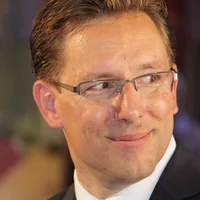The pressing need to rethink the Swiss Energy Mix following the decision to phase out nuclear power in Switzerland by 2034 lends added importance to accelerating the development of Enhanced Geothermal System (EGS) technology, which is generally regarded as the only way that geothermal energy can make a significant contribution to the electricity supply. GEOTHERM-2 is a proposal for collaboration between a consortium of geoscience, engineering and social-science groups at ETH Zurich, EPF Lausanne and the Paul Scherrer Institut (PSI) with industrial (Axpo, GeoEnergy Suisse) and public stakeholders (Bundesamt für Energie). GEOTHERM-2 consists of six Modules which are designed to (1) develop and test novel observational tools for the geomechanics of reservoir creation; to (2) assess and mitigate the risks associated with noticeable induced seismicity; to (3) assess potential accidental risks leading to health and environmental impacts as well as public perceptions of risks associated with geothermal energy development and develop strategies for communicating the risks; (4) expand a multi-scale – multi-process modeling code for simulating the process of reservoir generation as well as the longer-term evolution of the reservoir during production, to (5) investigate the effects of chemical reaction between fluid and rock on long-term permeability evolution and heat extraction from the fractured geothermal reservoir, and to (6) design a decision-support tool for optimizing the use of geothermal energy in cities, by quantifying all interacting factors including geological and economic parameters, conversion efficiency and temporal heat storage, complementary energy sources and societal acceptance. PSI’s Technology Assessment (TA) group is involved in Module 3 on “Comparative assessment of accidental risks and social acceptance” with specific three specific tasks, namely (1) provision of a systematic overview of geothermal risks, (2) establishment of a set of risk indicators and indicator quantification, and (3) development and implementation of a Multi-Criteria Decision Analysis (MCDA) as a screening and ranking methodology to select suitable areas for geothermal.
Project details
Duration: 2013-2016
Financing:
